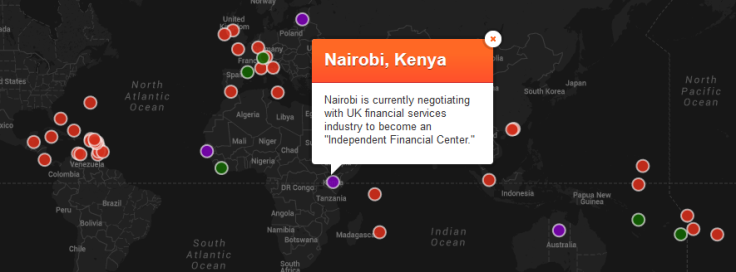Political Backlash Over Privacy Could Come As Tax Evasion Reform (FATCA) Speeds Up

Political tension could escalate if it becomes widely known that under U.S. diplomatic agreements targeting tax evasion, U.S. financial firms must share information on foreign-born U.S. residents with foreign governments.
The 2010 Foreign Account Tax Compliance Act targets U.S. taxpayers with overseas bank accounts by forcing foreign financial institutions to disclose information on these accounts to the Internal Revenue Service.
But under agreements signed with foreign countries, the U.S. also has committed to sharing information on some U.S. account holders with foreign governments, as other countries seek information on their own tax evaders, especially those seeking shelter in the U.S.
“The U.S. has generally said … that it is willing to reciprocate,” said Phil Garlett, a tax attorney with Burt, Staples & Maner LLP, at a New York tax conference in October 2013. “It’ll be interesting to see how that works through the political process.”
FATCA specialists have said the ambitious tax evasion crackdown is a key step toward global information-sharing by governments on citizen finances, as money flows internationalize. The OECD earlier in February released a global framework for sharing financial data, though actual data exchange may only start in 2017.
The U.S. Treasury Department, which oversees FATCA enforcement, declined to comment to IBTimes. But in its intergovernmental agreements (IGAs), the U.S. government has agreed to provide information on investment income, personal names and addresses, and account numbers, for many U.S. bank accounts.
The IRS already collects this information, but the diplomatic agreements now oblige the Americans to share the data with foreign governments. Treasury officials have signed agreements with 22 countries so far, with dozens more under way.
“If the U.S. is successful in this, and it gets reciprocity under the agreements … the political firestorm would be enormous,” Allison Christians, a tax professor at McGill University in Montreal who opposes FATCA, told IBTimes.
“It’s about financial surveillance. … Each and every time it has come to the U.S. Congress, on whether the U.S. should share information with other countries, on even close to a level they’re asking about right now, it’s been defeated,” she continued. “On the grounds that there was nothing to be gained by the U.S. in sharing such information.”
The topic has been the subject of lawsuits by state banking associations in Texas and Florida. The cases are now under appeal, after the bankers lost in the first round.
Opposition to FATCA from Republicans has also built in recent weeks. The Republican National Committee advocated for the legislation’s repeal, a long-shot prospect, in January.
Republicans will target vulnerable Democratic lawmakers in the 2014 midterm elections with Super PAC money, highlighting the FATCA issue, Republicans Overseas CEO Solomon Yue told IBTimes.
“One effective way to this issue is to use Super PACS to target vulnerable lawmakers who support FATCA or oppose its repeal,” said Yue, who operates two conservative Super PACs together with campaign finance lawyer James Bopp.
The GOP has petitioned for FATCA’s repeal. It has also urged almost two dozen foreign ambassadors to work against the reform, in letters sent to their embassies in Washington.
“U.S. green card holders, living and working in the U.S. – they could be citizens of Singapore or of Canada – U.S. banks will report their financial data,” said Yue. “This is big data collection. You’re talking about this kind of dragnet approach just to capture a few people.”
Republicans and other lawmakers have also noted anecdotal reports of overseas Americans losing banking services because of FATCA, though there is little data on the extent of the phenomenon. Major international banks are mostly complying with FATCA, partly to avoid substantial tax penalties.
Actual repeal of the legislation seems unlikely, according to several industry experts. Banks have spent millions in compliance costs already and Treasury officials are actively educating businesses on the rule. The finance industry and government officials have also tweaked regulations several times to offset privacy concerns.
Nonetheless, some still doubt FATCA will claw back much lost revenue.
“FATCA will not stop Americans from being able to hide money off shore,” Bob Mazur, a private investigator who used to work on criminal investigations for the IRS, wrote to IBTimes. “It will just involve their getting more comfortable with an additional layer to further block transparency.”
“In many cases, the beneficial owner [of funds] doesn't appear on any records,” he added.
In the world of private tax lawyers and offshore fund managers, FATCA may seem more of a nuisance than an obstacle, even as opposition to the project builds.
“Many of the people in my audiences are private client attorneys, fund managers, fund planners, etc.,” Mazur told IBTimes. “People in these jurisdictions I have met consistently believe that FATCA will die a natural death because of the demands for reciprocity.”
On the other side of the debate, many professionals in the international tax industry support FATCA.
“FATCA will be highly effective,” said Kathleen Celoria, executive director for DMS Offshore Investment Services, a Cayman Islands-based funds adviser.
“It’s been a very well-orchestrated piece of legislation. … You will not be able to operate as a non-compliant foreign financial institution in a FATCA world,” she said. “You will be a dinosaur and you will be phased out. You’ll continue to see global markets exchange more information. …We don’t expect for that to stop.”
The Treasury finalized FATCA regulations last Thursday, with some regulations taking effect in July. Treasury Secretary Jacob Lew called the reform a means to improve global tax standards and fight illicit activities.
Estimates have put lost offshore tax revenue at $100 billion annually. The law applies only to overseas accounts containing more than $50,000.
© Copyright IBTimes 2024. All rights reserved.






















